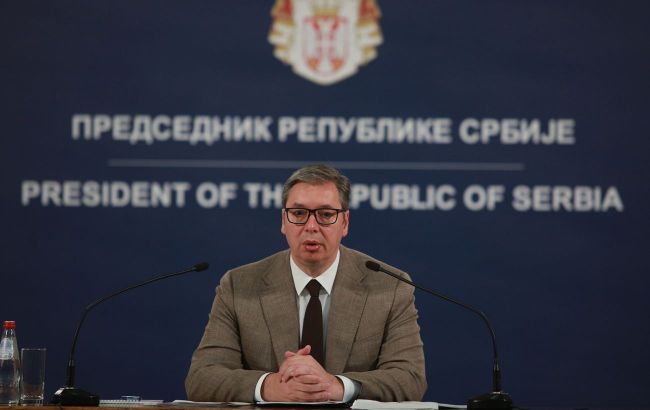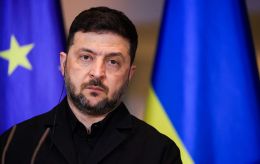It's not about Ukraine: Why Vučić calls protests in Serbia 'color revolutions'
 Photo: Serbian President Aleksandar Vučić (GettyImages)
Photo: Serbian President Aleksandar Vučić (GettyImages)
Serbian President Aleksandar Vučić has already called the protest in Belgrade as an attempt of "Maidan," hinting at the Ukrainian Revolution of Dignity, according to the RBC-Ukraine article.
As noted by the international observer and editor of the portal Balkan Observer Natalia Ishchenko, Vučić likes to scare Serbs with "Maidans" and "color revolutions" whenever any anti-government actions begin. Ukrainians often perceive this as a reference to our revolutions, but according to Ishchenko, it's not actually about them.
"Serbia is the cradle of the "color revolution.' The first so-called 'color revolution' happened when the Serbs overthrew the Milošević regime," Ishchenko explained.
According to Ishchenko, back in those days, Vučić was part of Milošević’s team, so when he talks about "Maidan," he primarily recalls those times, not Ukraine, Ishchenko believes.
"He knows very well what it’s about. And that’s why he announced that he has already started writing a book about how to fight ‘color revolutions.’ Vučić believes that he defeated this ‘color revolution,’ did not allow it to happen, and so on," she told RBC-Ukraine.
And helping Vučić fight the protests is none other than Moscow. Russia is deeply involved in efforts to prevent a change of power in Serbia, realizing that the next government will not be pro-Russian, the current president of the October Group Čedomir Stojković is convinced.
"However, the past decades demonstrate that the Kremlin always plays both sides: while supporting a pro-Russian government, it simultaneously works to establish influence within opposition parties to maintain its sway in the targeted country during a power transition. This is no exception now. It would be beneficial if Europe, Ukraine, and the West in general helped the Serbian opposition recognize these hybrid and intelligence attempts by the Kremlin, strengthening their immunity to such influences. Regardless, it is impossible for the Kremlin to exert the same level of influence over a future government as it does over the current one," Stojković believes.
Student protests in Serbia
Mass protests are ongoing in Serbia following the tragedy at the Novi Sad railway station, where 15 people were killed due to a roof collapse. Amid growing public outrage, the ministers of trade, construction, transport, and infrastructure resigned, but the protesters continue to accuse President Aleksandar Vučić's government of corruption and demand deeper changes.
Prime Minister Miloš Vučević also announced his resignation, stating that this was a step to reduce tensions. Anti-government actions had already taken place in Belgrade in November 2024, and earlier, in December 2023, protests erupted over the results of the parliamentary elections.
At the end of January, Vučić acknowledged the possibility of holding early parliamentary elections in April. In March, he declared his readiness to hold elections if demanded by the opposition.

